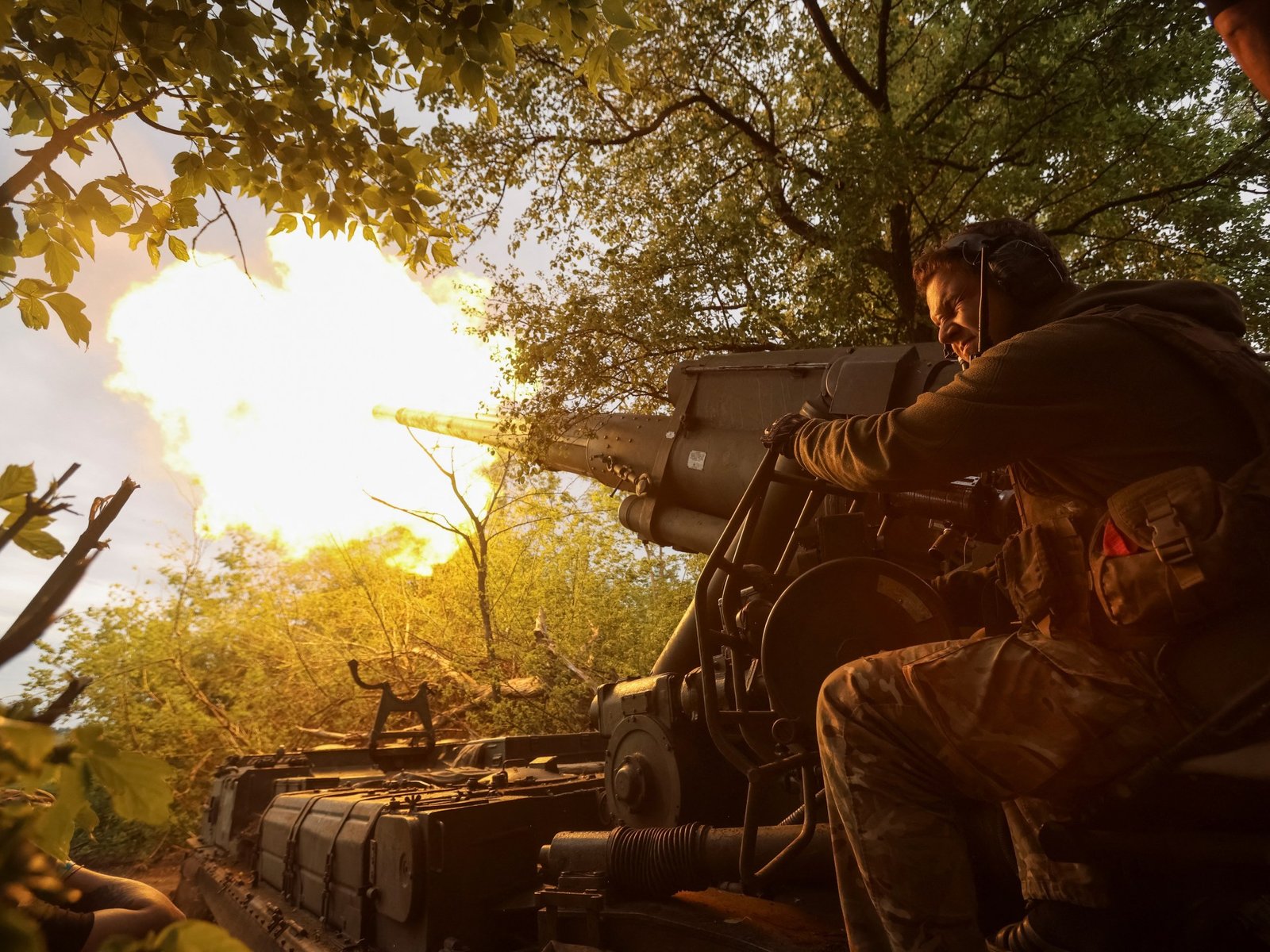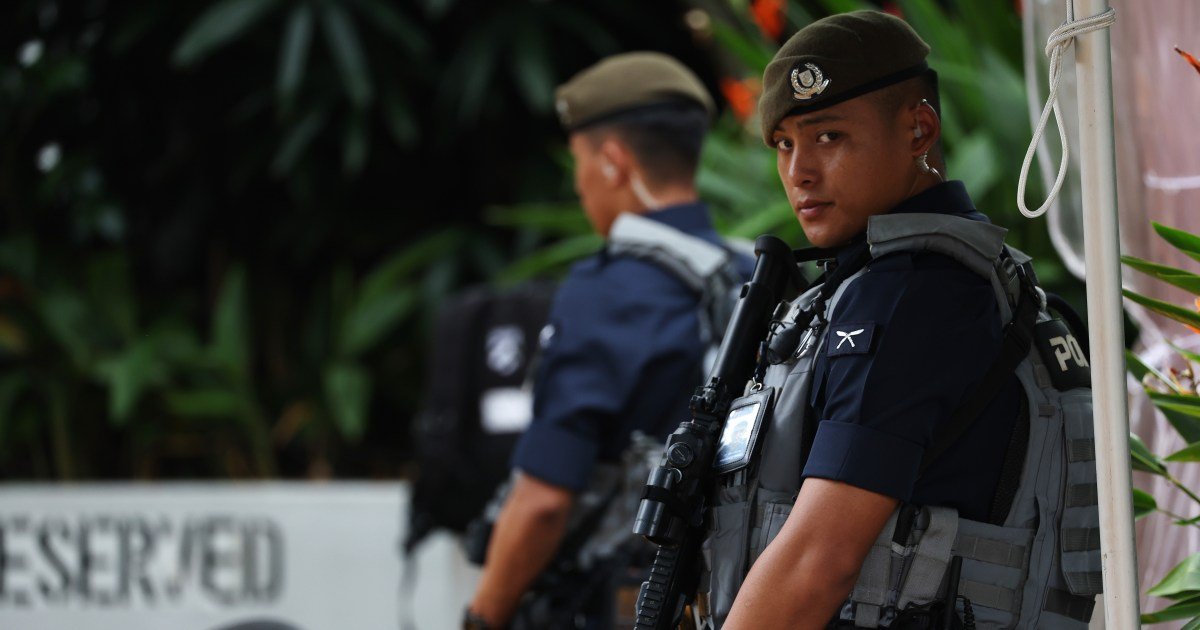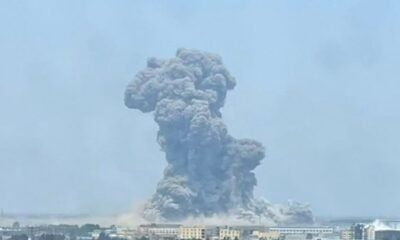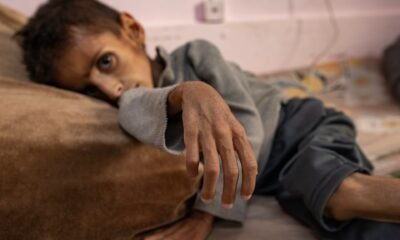Conflict Zones
Are Ethiopia and Eritrea hurtling towards war? | Conflict News

Tensions are again mounting between longtime foes Ethiopia and Eritrea over Addis Ababa’s quest for maritime access, causing fears of yet another conflict in the Horn of Africa barely seven years after the two neighbours restored ties.
Eritrea has, in recent months, called for young people to sign up for the army, while Ethiopia has reportedly deployed troops to joint border areas. Analysts say those moves could potentially see the two armies come face to face in a conflict.
Ethiopian Prime Minister Abiy Ahmed, in a recent statement on X, ruled out conflict with Eritrea to gain access to the Red Sea. Abiy, who has previously said gaining access to the Red Sea was “an existential issue”, stressed that his country wanted to achieve it “peacefully via dialogue”.
But Eritrea has, on its part, struck a harsher tone, and called Ethiopia “misguided” over border tensions.
Here’s what to know about the two countries’ historically fraught relationship, and why tensions are building again:

What are the signs of tension between Ethiopia and Eritrea?
There has been a build-up of hostilities in recent months.
Last September, Ethiopian Airlines, the country’s national carrier, was forced to suspend flights to Eritrea after it received a ban notice from Asmara and its bank accounts there were frozen. Officials of the airline said no reasons were given for the ban.
Then, in February, an Eritrean rights group, Human Rights Concern Eritrea (HRCE) reported that the Eritrean government was issuing military mobilisation directives to citizens below 60 years old, and was calling up reservists. The group said the announcements represented forced conscription policies in the authoritarian-led country.
“This sudden and unprecedented mobilisation has sent shockwaves through Eritrean society, as it is assumed that the war could be with neighbouring Ethiopia,” HRCE said in its report.
“We call on the United Nations, the African Union, and all concerned governments to intervene and pressure the Eritrean and Ethiopian governments to cease these actions, respect the rights of their citizens, and halt any escalation towards war.”
Similarly, according to reporting by the Reuters news agency, Ethiopia deployed troops and tanks on its northern borders with Eritrea early in March. Officials did not give any reasons for the troop build-up there.

Conflict in Ethiopia’s northern region of Tigray has also signalled escalating hostilities between the neighbouring countries. Political disputes in Tigray, which borders Eritrea, have seen the government there splinter, with one faction reportedly allying with Eritrea.
The semiautonomous Tigray region was the epicentre of a civil war that lasted from 2020 to 2022, and that created a humanitarian crisis that saw hundreds of thousands killed, and about three million internally displaced. It was a result of the Ethiopian government’s attempts to put down a rebellion by the Tigrayan governing party – the Tigray People’s Liberation Front (TPLF). Addis Ababa accused the TPLF of trying to dominate the country’s federal politics, while the TPLF saw the central government as controlling too much power.
Eritrean forces collaborated with Ethiopian troops during the Tigray war, with all sides being accused of severe human rights violations. However, when a peace deal – the Pretoria Peace Agreement – was signed in November 2022 between the Ethiopian federal government and the rebel regional government, Eritrea was not invited to the negotiations. Some analysts believe officials in Eritrea felt slighted, and that the move drove a wedge between the two governments.

Why has the TPLF broken into factions?
The fragile peace achieved in Tigray has since come apart as an interim TPLF administration installed after the war split into two factions this year.
A dissident faction accuses the interim TPLF government, led by Getachew Reda, of failing to uphold the peace deal agreements, such as returning displaced people to their homes, and of “selling out” Tigrayan interests in its alliance with the federal authorities. In the latest offensives last week, the breakaway faction, under TPLF chairman Debretsion Gebremichael, seized the major Tigrayan towns of Adigrat and Adi-Gudem amid reports of civilian displacements and injuries. The group also reportedly took over the main radio station in Mekelle, the regional capital.
The breakaway faction is also accused of collaborating with Eritrea, although the government in Asmara denies any links with dissident TPLF members.
In a statement on Wednesday, the interim TPLF administration sought help from the federal government in Addis Ababa, saying “the region may be on the brink of another crisis”.
General Tsadkan Gebretensae, a vice president in the interim administration in Ethiopia’s Tigray region, writing recently in the Africa Report, an Africa-focused magazine, echoed those thoughts.
“At any moment, war between Ethiopia and Eritrea could break out,” he wrote.
Why are relations between Eritrea and Ethiopia historically fragile?
Eritrea was an Italian colony until 1951, when it fell under British control and became an autonomous part of Ethiopia. In 1962, Ethiopia sought to annex Eritrea, but rebel forces, led by leader Isaias Afwerki, resisted in an armed struggle and secured independence in 1993.
In 1998, clashes broke out over disputed border territories, resulting in a two-year war. An estimated 80,000 people were killed, and the conflict broke apart families across borders as all diplomatic ties and interstate communication – transport, phone, and postal networks – were cut. In 2000, a UN-backed peace deal granted the disputed territories to Eritrea, but the deal was never implemented.
When Abiy became prime minister in 2018, he immediately moved to end the tensions and normalise diplomatic relations with Eritrean President Isaias Afwerki, who has ruled since 1993.
“We will demolish the wall and, with love, build a bridge between the two countries,” Abiy had said during his historic trip to Asmara after decades of strife.
Soon, communication links were re-established and many families reunited. Flights also commenced between the capital cities of Addis Ababa and Asmara.
However, analysts say Eritrea, following its involvement in the Tigray war, was unhappy about being excluded from the peace negotiations. The TPLF main faction and Eritrea remain deeply hostile towards each other, and some reports reveal that Eritrean forces have not fully withdrawn from parts of Tigray, despite the war being over. There is speculation that both countries could turn Tigray into a proxy battlefield.
Abiy’s ambitions to seek direct sea access for landlocked Ethiopia have also contributed to the tensions. Addis Ababa’s access to the port was severed after Eritrea declared independence. Since then, the Red Sea port of Djibouti has been the main trade conduit for Ethiopia, but it is costly – about $1bn annually.
In recent years, Abiy has repeated that Ethiopia has a right to sea access, words that officials in Asmara take as a declaration of territorial conflict with Eritrea, which lies on the Red Sea and took all of Ethiopia’s sea access with it upon independence. Some say Abiy is eyeing the port of Assab, one of Eritrea’s two ports.
Foreign Minister Osman Saleh gave a briefing this morning, at the Foreign Ministry HQ in Asmara, to Resident Ambassadors/Members of the Diplomatic Corps and Heads of UN Agencies accredited to the country, on false accusations regarding: i) Eritrea’s presumptive preparations for…
— Yemane G. Meskel 🇪🇷 (@hawelti) March 18, 2025
In a press briefing last week, Eritrea’s Foreign Minister Osman Saleh scolded Ethiopia for its rhetoric and denied preparing for a war.
“Eritrea is perplexed by Ethiopia’s misguided and outdated ambitions for maritime access and naval base through diplomacy or military force,” Saleh said. “In this respect, Eritrea urges the international community and its relevant bodies to put pressure on Ethiopia to respect the sovereignty and territorial integrity of its neighbours.”
Ethiopia has also angered Somalia, its neighbour to the east, with those declarations. After Ethiopia signed a port deal with autonomous, coastal Somaliland, Somalia, which sees Somaliland as one of its regions, cut off diplomatic ties with Addis Ababa.
In what appeared to be retaliation and, perhaps, taking sides, Eritrea signed a security agreement with Somalia and Egypt last October. Ethiopia has also fallen out with Egypt over issues related to shared access to the Nile River.
What next?
Amid fears of another conflict, residents in Tigray are queueing at banks to withdraw cash, some hoping to leave the region for Addis Ababa or neighbouring countries, according to reporting by the United Kingdom’s Guardian newspaper. Government forces are also patrolling heavily and conducting ID checks.
Abiy, in a post on X, sought to allay fears. He assured that Ethiopia would not go to war with Eritrea but would seek a peaceful dialogue to resolve the issues.
“Ethiopia does not have any intention of engaging in conflict with Eritrea for the purpose of gaining access to the sea. Our desire is to engage in dialogue and discussion on this matter instead. Access to the Red Sea is nevertheless an existential matter for Ethiopia. What we… pic.twitter.com/QOdbJGxHYe
— Office of the Prime Minister – Ethiopia (@PMEthiopia) March 20, 2025
“Ethiopia does not have any intention of engaging in conflict with Eritrea for the purpose of gaining access to the sea,” Abiy said on Thursday, according to a post by his office on X.
Eritrea has not responded to Abiy’s statement. Earlier, Osman Saleh, the country’s foreign minister, denied allegations of Eritrean troops’ presence on the ground in Ethiopia.
This week, Saleh also met Egyptian President Abdel Fattah el-Sisi in Cairo to discuss “the security of the Red Sea” as Asmara appears set to continue parlaying with stronger rivals of Ethiopia.
Meanwhile, the African Union, the European Union, and the United States have called for a de-escalation of hostilities. Writing in the US magazine Foreign Policy last week, Payton Knopf and Alexander Rondos, former US and EU special envoys to the region, described the developments as “dry tinder waiting for a match that could ignite an interstate war between Ethiopia and Eritrea”.
Conflict Zones
Sudan Paramilitary Claims Key Gains in Kordofan; Fighting Intensifies Near Khartoum

Khartoum, May 30, 2025 — Rapid Support Forces (RSF) deputy leader Abdel Rahim Daglo announced on Friday that RSF fighters would press their eastward advance toward Khartoum, claiming “great victories” in several strategic towns across Kordofan. Addressing troops at an undisclosed location, Daglo said that all armed groups within the Tasis coalition had joined his paramilitary ranks and were now operating in concert with the RSF.
According to Daglo, RSF units seized control of Al-Dubaibat and Al-Hammadi in South Kordofan state, as well as Al-Khawi in neighboring West Kordofan. “Our fighters have secured these areas after intense clashes with Sudanese Armed Forces (SAF) units and allied militias,” Daglo declared, adding that the momentum would not wane until the capital was within reach.
Sudan’s army, however, downplayed recent RSF advances as part of a “reorganization” campaign. A senior ally of the SAF—also the governor of Darfur—insisted that the military was regrouping and fortified its positions to counter what he described as “a temporary setback.” He maintained that the SAF’s strategic reserves remained intact and that front-line forces were being repositioned to mount a sustained defense of Khartoum.
As fighting has spread northward, the humanitarian situation in Khartoum has deteriorated sharply. With basic services all but collapsed, a deadly cholera outbreak has emerged in the densely populated capital. Aid agencies warn that the impending rainy season could exacerbate sanitation challenges, fueling further disease transmission. The United Nations has labeled the crisis “the world’s worst humanitarian emergency,” citing over 25,000 confirmed deaths and more than 3 million internally displaced persons since April.
International pressure has also mounted on Sudan’s transitional government. In late May, Washington imposed sanctions on Sudanese military leaders for the “alleged use of chemical weapons” against civilians. In response, the government announced a national investigation into the claims—a move it said was aimed at preserving Sudan’s international standing amid intensifying conflict.
With both sides entrenching their positions around Khartoum, observers warn that a protracted stalemate could unleash further civilian suffering. The RSF’s pledge to advance eastward has raised concerns that front-line engagements may spill into densely populated suburbs, where millions have already endured weeks of intermittent shelling and aerial bombardments. For now, the fate of Khartoum—and the broader prospects for peace—remain uncertain as paramilitary and army forces brace for a decisive showdown.
Conflict Zones
Two killed in Russian attacks on Ukraine before possible talks in Turkiye | Russia-Ukraine war News

Russia has confirmed it will send a delegation to Istanbul, but Kyiv has not yet accepted the proposal.
Russian drone and missile attacks on Ukraine have killed at least two people, according to officials, as Ukraine ordered the evacuation of 11 more villages in its Sumy region bordering Russia.
Russian troops launched an estimated 109 drones and five missiles across Ukraine on Friday and overnight, the Ukrainian air force said on Saturday, adding that three of the missiles and 42 drones were destroyed and another 30 drones failed to reach their targets without causing damage.
The attacks came amid uncertainty over whether Kyiv will take part in a new round of peace talks early next week in Istanbul.
In the Russian attacks on Saturday, a child was killed in a strike on the front-line village of Dolynka in the Zaporizhia region, and another was injured, Zaporizhia’s Governor Ivan Fedorov said.
“One house was destroyed. The shockwave from the blast also damaged several other houses, cars, and outbuildings,” Fedorov wrote on Telegram.
A man was also killed by Russian shelling in Ukraine’s Kherson region, Governor Oleksandr Prokudin wrote on Telegram.
Moscow did not comment on either attack.
Meanwhile, authorities in Ukraine’s Sumy region said they were evacuating 11 villages within a roughly 30-kilometre (19-mile) range from the Russian border.
“The decision was made in view of the constant threat to civilian life as a result of shelling of border communities,” the regional administration said on social media.
Ukrainian President Volodymyr Zelenskyy has said some 50,000 Russian troops have amassed in the area with the intention of launching an offensive to carve out a buffer zone inside Ukrainian territory.
Ukraine’s top army chief, Oleksandr Syrskii, said on Saturday that Russian forces were focusing their main offensive efforts on Pokrovsk, Torets and Lyman in the Donetsk region, as well as the Sumy border area.
Syrskii added that Ukrainian forces are still holding territory in Russia’s Kursk region – a statement Moscow has repeatedly denied.
The evacuations and attacks came just two days before a possible meeting between Kyiv and Moscow in Istanbul, as Washington called on both countries to end the three-year war.
Russia has confirmed it will send a delegation, but Kyiv has not yet accepted the proposal, warning the talks would not yield results unless the Kremlin provided its peace terms in advance.
Zelenskyy said Saturday it was still not clear what Moscow was planning to achieve at the meeting and that so far, it did not “look very serious”.
Conflict Zones
Hegseth warns of China threat as Beijing’s top brass skip Singapore summit | Military News

Singapore – Of the many military officials darting across the lobby of Singapore’s Shangri-La Hotel this weekend, there has been one significant absence.
China’s Defence Minister Dong Jun skipped the annual Shangri-La Dialogue, Asia’s premier security forum, with Beijing sending a delegation of lower-ranking representatives instead.
It was the first time since 2019 that China has not dispatched its defence minister to the high-level dialogue on regional defence, except when the event was cancelled in 2020 and 2021 due to the COVID-19 pandemic.
Beijing’s decision raised eyebrows in Singapore, coming at a time of heightened tensions between China and the United States – the world’s two biggest superpowers.
Dong’s absence meant there was no face-to-face meeting with his US counterpart, Secretary of Defence Pete Hegseth, who had the floor to himself on Saturday when he told the defence forum that the military threat posed by China was potentially imminent.
“It has to be clear to all that Beijing is credibly preparing to potentially use military force to alter the balance of power in the Indo-Pacific,” Hegseth told delegates in Singapore.
Pointing to China’s regular military drills around Taiwan as well as increasingly frequent skirmishes in the South China Sea, Hegseth said Beijing was proactively harassing its neighbours.
“There’s no reason to sugar-coat it. The threat China poses is real, and it could be imminent,” Hegseth said.
He also pointed to China’s growing military assertiveness as a reason for Asian nations to boost their defence spending, pointing to Germany, which has pledged to move towards spending 5 percent of its gross domestic product (GDP) on defence.
“It doesn’t make sense for countries in Europe to do that while key allies in Asia spend less on defence in the face of an even more formidable threat,” Hegseth said.
The defence chief also looked to reassure Asian allies that Washington was committed to Asia Pacific security despite strained ties in recent months as US President Donald Trump targeted some close allies with hefty trade tariffs.
“America is proud to be back in the Indo-Pacific, and we’re here to stay,” he said, opening his speech.
Some analysts were quick to play down the severity of Hegseth’s warnings about China.
“Short of a very few countries, not many in this part of the world see China as an imminent threat and would up their [defence] spending,” said Dylan Loh, assistant professor in the public policy and global affairs programme at Singapore’s Nanyang Technological University.
China tight-lipped on defence chief’s absence
In previous years, the Shangri-La Dialogue had provided a rare platform for meetings between Chinese and US officials in the more informal surroundings that the summit could offer.
The structure of the schedule also allowed Beijing’s military chiefs to directly respond to the keynote speech from the US defence secretary and to present their narrative to other members of the Asia Pacific.
Beijing has remained tight-lipped on the reason for Defence Minister Dong’s absence from the forum, fuelling an information void that has been filled by speculation.
One theory is that China did not want to send a high-profile delegate to the event at such a sensitive time as Beijing navigates the tariff war with the Trump administration.
“Any sort of faux pas or comments that may go off script can be picked up and picked apart or misconstrued,” said Loh, of Singapore’s Nanyang Technological University.
“So the question is why take the risk when US-China relations are at a very delicate point at this moment,” Loh told Al Jazeera.

The Shangri-La Dialogue weekend has not always been the easiest occasion for Chinese defence ministers. In recent years, they have faced difficult questions from their counterparts in other countries, who are unhappy with Beijing’s increasing assertiveness in the Asia Pacific region.
Loh said this could be another factor in Dong’s absence from the high-profile event.
“Any Chinese defence minister coming to Singapore now will be exposing himself and the country to political risk,” he said. “Themes like the South China Sea and possibly Taiwan will emerge, which makes China a convenient target,” Loh added.
Dong was appointed as China’s defence minister in late 2023, after his predecessor, Li Shangfu, was removed from office.
Less than a year into the job, there was speculation surrounding Dong’s new position following media reports that he was under investigation as part of a wider investigation into corruption in the Chinese military. Beijing denied the reports, with the minister continuing to maintain a public profile despite the allegations.
There has also been intense scrutiny of China’s military, following reports of an apparent purge of top-level officials by President Xi Jinping.
One of Beijing’s most senior generals, He Weidong, was missing from a high-profile political meeting in April, adding to rumours surrounding a possible restructuring in the People’s Liberation Army (PLA).
Ian Chong, a nonresident scholar at the Carnegie China research centre, said such speculation could be a factor in Dong’s no-show in Singapore.
“Because of the domestic turmoil with China’s senior military, they perhaps don’t want to, or the PLA itself feels that it’s not in a position to send somebody senior,” Chong told Al Jazeera.
Announcing Dong’s absence at a news conference before the summit, Chinese military spokesperson Senior Colonel Zhang Xiaogang maintained that communication channels were still open between defence officials in Washington and Beijing.
“China places great importance on US-China military ties, and is open to communication at different levels,” Zhang said.
-

 Africa4 days ago
Africa4 days agoSurvivor of Liverpool car ramming talks of shock and panic
-

 Sports3 days ago
Sports3 days agoThe Knicks are bringing hope and title dreams back to New York after years in the doldrums
-

 Lifestyle3 days ago
Lifestyle3 days agoChildren and careers: Talking to kids about what they want to be when they grow up
-

 Lifestyle4 days ago
Lifestyle4 days agoHow to decorate a patio, balcony or other small outdoor space
-

 Lifestyle3 days ago
Lifestyle3 days agoFaizan Zaki hopes to go from spelling bee runner-up to champ
-

 Asia5 days ago
Asia5 days agoHuge blast rocks Chinese chemical plant, authorities launch rescue operation
-

 Europe4 days ago
Europe4 days agoMacron’s marital shove disappears from French airwaves
-

 Middle East3 days ago
Middle East3 days agoThe cost of conscience: I lost friends for defending Palestinians | Israel-Palestine conflict




